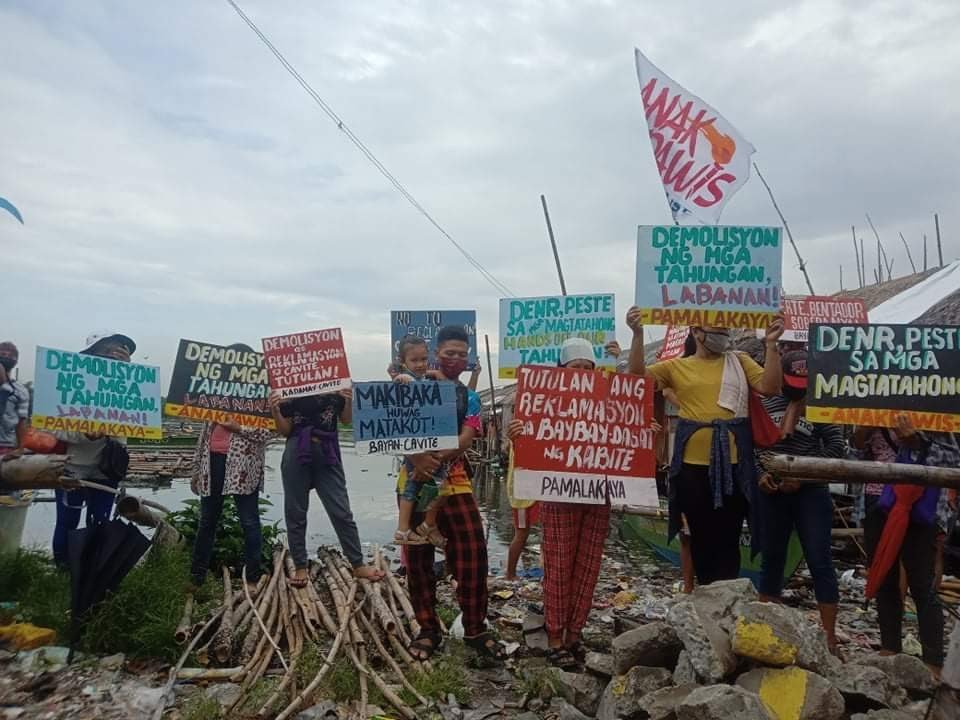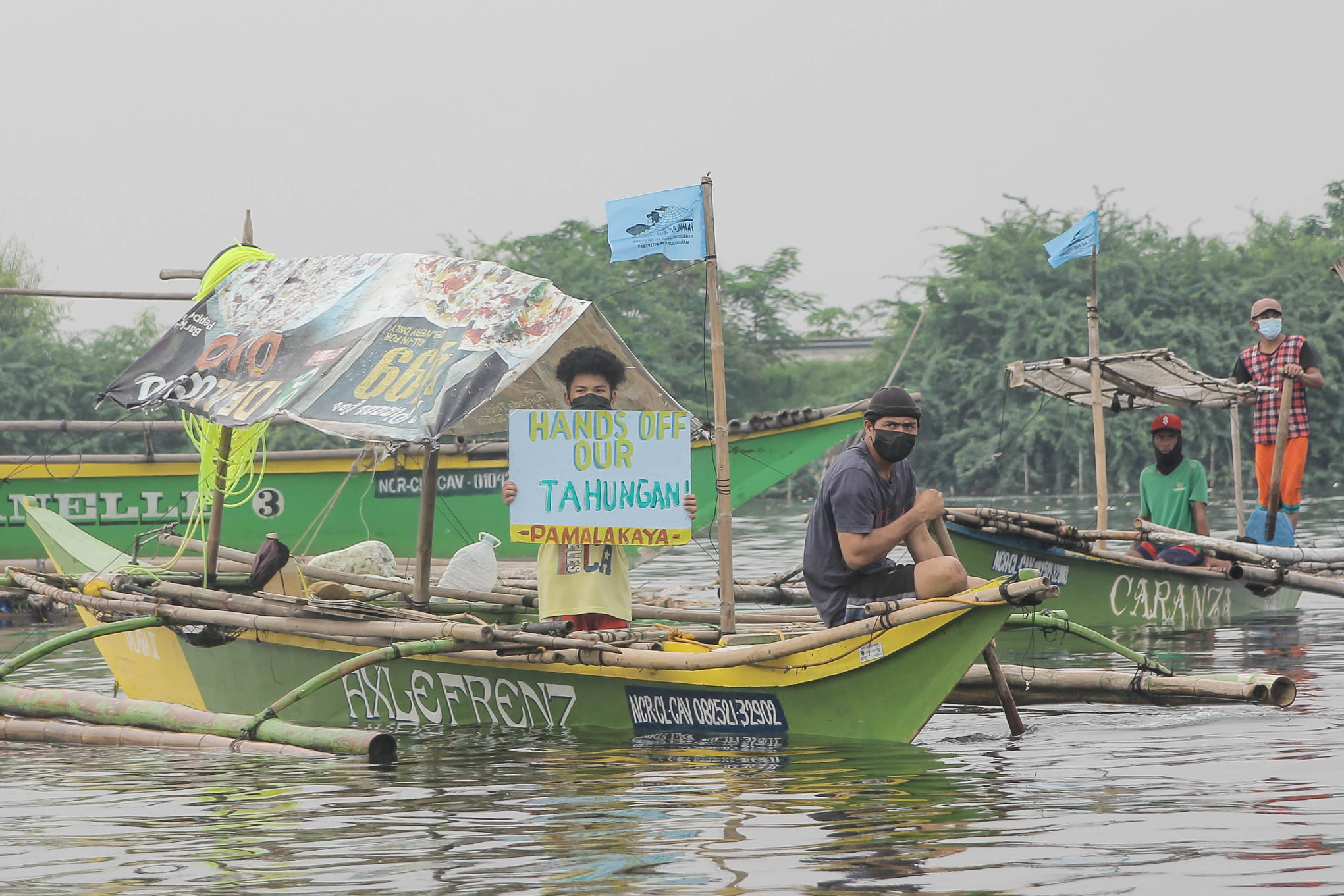AGHAM-Advocates of Science and Technology for the People strongly urge the Department of Environment and Natural Resources (DENR) to withdraw its order to demolish fish pens and mussel and oyster farms in Cavite City, Kawit, Rosario and Noveleta. Instead, DENR must listen to the affected communities and give them enough support to improve their livelihood amid the COVID-19 pandemic.
DENR’ claim that these livelihood structures are a source of environmental degradation in the bay area is ridiculous. We know that the real reason behind these demolitions is to make way for a way more environmentally destructive project, the Cavite Province Land Reclamation and Development Project, which aims to create 5 islands located in the municipal waters of Cavite City, Kawit, Rosario and Noveleta.
AGHAM Food Security and Self-sufficiency (AGHAM FSS) chapter foresees that these reclamation projects will immediately cause a decline in our already insufficient food supply and greater destruction to the Manila Bay environment in the long-run.
These reclamation projects, across its implementation phases, will impact not only the actual reclaimed area. Nearby municipal waters, where locals depend on shellfish farming, will also suffer as a result. Expected changes on water qualities brought by nearby reclamation activities will change their aquacultural yield and the health of the ecosystem.

The planned Island A (located between Cavite City, Kawit and Bacoor) will block almost entirely Bacoor Bay, a subset of Manila Bay. Consequently, this will change the natural water current of Bacoor City and nearby areas. This means changes on water flushing, wherein pollution loads from outfalls will be stuck on the interior portion where other shellfish farms operate. Inbound pollutants from other parts of the bay may also be trapped inside Bacoor Bay as the reclamation creates a bottleneck in the area.
Construction and operation phases of reclamation will impact the water and sediment qualities of surrounding areas. As early as in the construction phase, where loads of earth materials will be deposited on the sea, soft bottom (sediments) ecosystems will be disturbed. Reclamation materials like foundation rocks and soils may be carried by the current across the bay. This will mean intensified turbidity of the water which can further alter available food materials for its natural aquatic life.
While it is possible that there are no species of concern living on the area to be reclaimed, we note that these “insignificant” living benthic (seabed) organisms provide food materials to the already limited larger life forms in the area. A disruption on the food chain will ultimately cause disruption on the whole bay’s ecosystem.
We also find it quite inhumane and totally irrational that this is taking place in the middle of a pandemic. Filipinos already have limited access to food and daily resources. It is estimated that some 15,000 fisher folk and coastal residents will be affected by the reclamation projects in Cavite. A huge part of them are mussel producers. Destroying their farms will profoundly impact on our shellfish supply as Cavite alone produces a third of the total mussels consumed in the country. Fisher folk families will also be left homeless, placing them at greater risk in contracting COVID-19 and other threats to their health.
DENR must totally review its Manila Bay rehabilitation and restoration strategy. With its push for reclamation projects all over the bay, from Bulacan to Cavite and beyond, one wonders if the environmental agency is really sincere in its aim to rehabilitate the bay.






1 Comment
Fisherfolk, residents protest potential loss of livelihood; DENR neglects calls to junk demolition move – UPLB Perspective · September 13, 2021 at 2:59 pm
[…] of Science and Technology for the People described DENR’s objective as “ridiculous,” saying that the motive behind these demolitions was to make […]